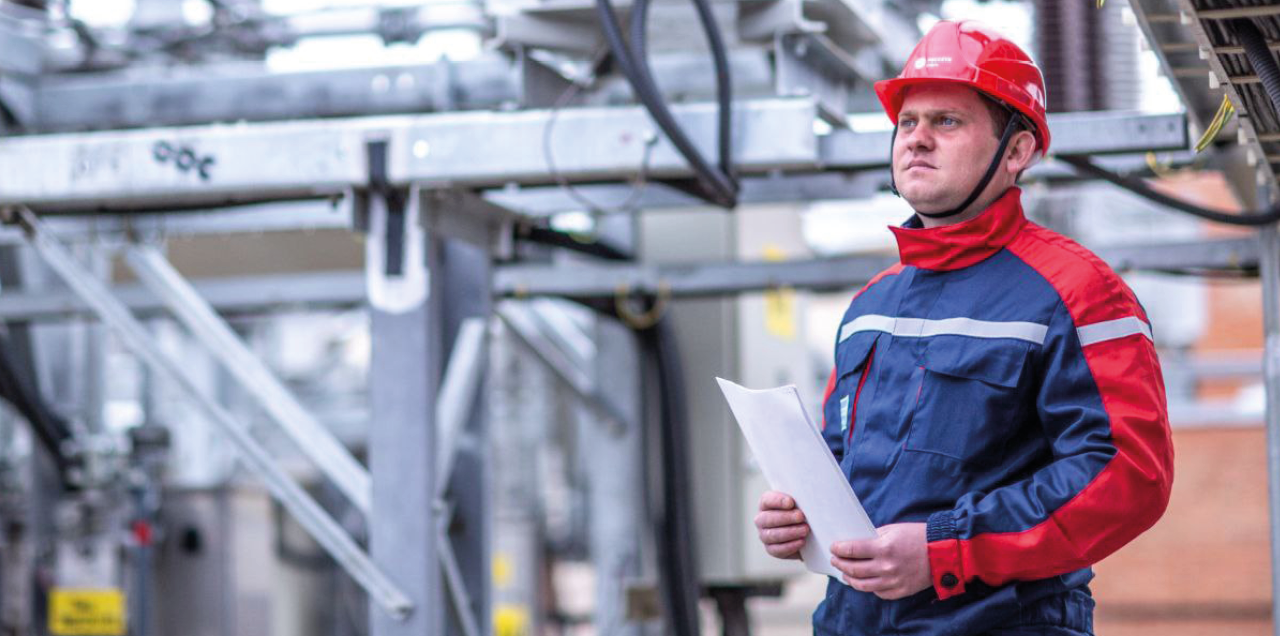Risks pertaining to sustainable development
The focus of the Company’s management is on health and safety, employee development, mitigating negative environmental consequences, and other ESG concerns, which are continuously monitored by dedicated divisions. Sustainable development risks are managed within the framework of the Company’s RM&ICS. Risk assessment and management take a variety of factors into account, including ESG, which helps the business comply with its sustainability standards.
Risks related to the impact of climate change on the Company’s operations are short‑term in terms of impact time but have a significant level of consequences. The Company assesses them as significant as they may have a negative impact on the quality and reliability of power supply.
High outdoor air temperature in summer, typical for the region of the Company’s presence, may entail the risk of overloading power supply centres, which causes a decrease in the quality of power supply to consumers. In order to minimise this risk, the Company constantly implements security procedures to redistribute loads between power supply centres, and it also incorporates measures to increase the capacity of power supply centres into the Company’s investment programme.
Natural disasters such as hurricanes, intense rain, floods, snowdrifts, mudflows, etc., increase the likelihood of emergencies in the areas where the Company works. These events could cause material harm to the population, public utilities, housing and social facilities, as well as disrupt power supplies and transportation networks. In order to minimise the impact of adverse weather conditions, the Company takes the following steps:
- Continuous monitoring of weather conditions with the development and implementation of action plans to reduce the consequences for the Company (during spring high water and floods, during the thunderstorm season)
- Preliminary planning and adjustment of equipment repair schedules with due regard to weather conditions
- Emergency recovery work
- Co‑operation with the insurance company in order to obtain indemnities to compensate for damage caused to the Company’s insured property by natural disasters
Given the extent to which production activities affect soil, atmospheric air, surface and subsurface subsoil, flora and fauna, the Company pays close attention to mitigating adverse effects on these natural environment components and guaranteeing environmental safety at power grid facilities. Risks related to the Company’s environmental impact are long‑term in terms of time of impact and are assessed by the Company as moderate, given the implemented set of environmental risk management measures. In order to minimise these risks, the Company undertakes obligations to comply with the requirements of environmental legislation and performs the following measures:
- Implements the Programme of measures aimed at ensuring environmental safety and protection of the environment
- Modernises equipment and applies innovative and environmentally friendly technologies in the renovation, retrofitting and construction of power grids, including decommissioning of polychlorinated biphenyl‑containing equipment and replacing it with environmentally friendly equipment
- Monitors the negative environmental impact, complying with the established permissible impact rates, and submits to the regulatory authorities information on the protection of atmospheric air and on the generation, processing, utilisation, disposal, neutralisation, and disposal of production and consumption waste
- Ensures that suppliers of products and services comply with the requirements of legislation, standards, codes and internal documents of the Company regarding environmental protection and environmental safety
The Company’s business philosophy is to continuously develop the professional skills of its employees and to create a favourable social and production environment. Social rights of the Company’s workers extend to just and favourable conditions of work, protection against unemployment, fair and satisfactory remuneration, equal pay for equal work, the opportunity to maintain the health and well‑being of the people and their family, and education.
The Company seeks to respect the social rights of its employees, including protection from unemployment and fair remuneration. The Company reimburses sports costs, raises the level of education of its employees, provides corporate support to improve the housing conditions of its employees, and implements a separate housing programme for employees recruited to the Company from other regions.
Risks related to non‑compliance with social rights and guarantees of employees are medium‑term by time of impact. Considering the high responsibility of the Company in realising its social obligations, these risks are assessed as moderate.
